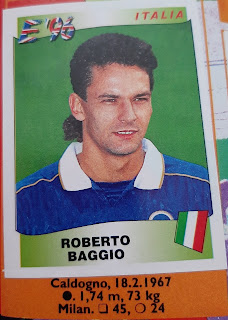65: Cyrille Regis, Coventry City, Panini’s Football 88 Sticker Album
We have another request post today this time coming from Gary Cook of the Retro Football Network. Once again we would strongly suggest you give him a follow on Twitter for your daily dose of football nostalgia. It’s fair to say today’s subject provided the beautiful game with several great moments and his passing in 2018 was a huge loss to both the sport and the country as a whole. We hope this serves as a fitting tribute to a man who, in Gary’s words, “was liked and respected” whether he played for your club or not.
The penalty shootout between England and Italy which concluded the European Championship back in July took approximately eight minutes. Sadly it took little more than eight seconds for racists to take to social media to hurl abuse at Marcus Rashford, Jadon Sancho and Bukayo Saka. This was not the first time that these three exceptionally talented young men had been on the receiving end of such risible behaviour and depressingly it’s unlikely to be the last. To present this as purely football’s problem is lazy and, moreover, inaccurate but it is a lot easier than us asking ourselves more difficult and introspective questions or holding those in positions of power to account.
Cyrille Regis, who scored 203 goals in 739 professional appearances, died of a heart attack in January 2018 at the age of 59. His death was met with great sadness in the footballing community with his peers and admirers paying tribute to his excellent ability on the pitch, pioneering role as a black sportsman in the 1970s and stoicism in the face of the vile racist abuse he received from both home and away spectators during his career. BBC Sport described him as “one of the first black footballers to make a significant impact on the British game” which both rightfully highlighted Regis’ impressive career at West Bromwich Albion, Coventry City, Aston Villa, Wolverhampton Wanderers, Wycombe Wanderers and Chester City but also completely overlooked over a century of significant contributions by black footballers from Andrew Watson and Arthur Wharton to Walter Tull and Jack Leslie.
In the BBC’s defence the combination of a lack of archive footage of these players and the attitudes of their time meant that it was not until the 1970s that black footballers began to gain recognition in Britain and Cyrille Regis, alongside his West Brom teammates Brendon Batson and Laurie Cunningham, were among the most recognisable. Labelled, somewhat crassly, as ‘The Three Degrees’ the trio were responsible for making the Baggies one of the decade’s most watchable sides and were hugely popular with the Hawthorns’ faithful. Cunningham’s 28 goals in 103 appearances across three seasons for West Brom caught the attention of Real Madrid in 1979 and, after becoming their first British player, he helped the Spanish giants to a league and cup double in his debut season. Batson had his career cut cruelly short following a serious knee injury in 1982. Having contributed 111 goals in 300 appearances for the Baggies Regis too moved on to Coventry City in 1984 by which time he had earned the first of his five England caps becoming only the third black player to represent the Three Lions.
At Coventry he continued to contribute goals and was a key part of the Sky Blues side which won the 1987 FA Cup. Johan Cruyff was so impressed with his form that he apparently identified Regis as a potential successor to the outgoing Marco Van Basten at Ajax but was prevented from completing the deal by the financial constraints placed on him by the Dutch club’s board. Fittingly Regis’ next move was a few miles up the road to Aston Villa where he finished his first full season as the club’s joint top goalscorer alongside some young lad called Dwight Yorke. With his game time limited in the inaugural Premier League season he moved down a division, but still in the Midlands area, to Wolves where his solitary season at Molineux produced two goals in 22 games. Short stays with Wycombe and Chester further down the league pyramid led to seventeen more goals before he called time on his career at the end of the 1995/96 season at the age of 38.
Wherever Regis played he was taken into the hearts of the supporters. In 2004 he was voted as West Brom’s cult hero in a BBC Sport poll and was one of thirty players to be included in Coventry’s 2008 Hall of Fame. Perhaps more significantly, despite playing in a period where racial abuse was distressingly common, Regis’ undeniable ability and refusal to be cowed earned him the respect of fans and pundits alike. One of my cricket teammates told me of a lovely moment in his last season where, as he left the pitch during Chester’s 2-0 away win at Leyton Orient, Regis saluted the block at Brisbane Road named after his friend and former ‘Degree’ Laurie Cunningham bringing the Os fans to their feet. Shortly after his passing Liam Rosenior wrote a touching open letter in The Guardian which highlighted Regis’ influence on the game and the prospects of thousands of young black footballers and stated “we have a duty to you to follow your message that the best way to beat the bigots is to be ourselves, strive to be outstanding at what we do and smile while doing it.” Football is blessed to have so many talented players doing just that and, nearly four years after Cyrille Regis’ untimely death, it’s time that the beautiful game and society as a whole took a long hard look at itself and matched the standards set out by the great man himself.





Comments
Post a Comment